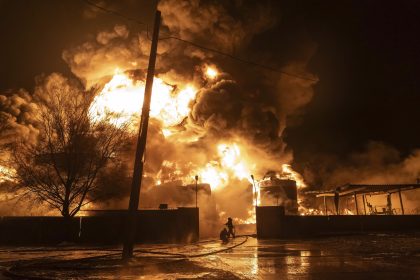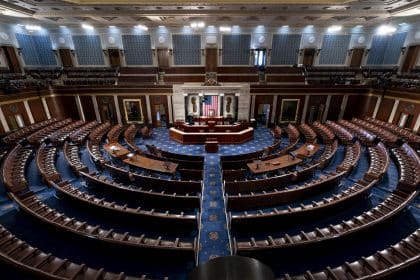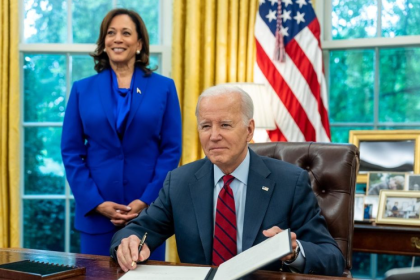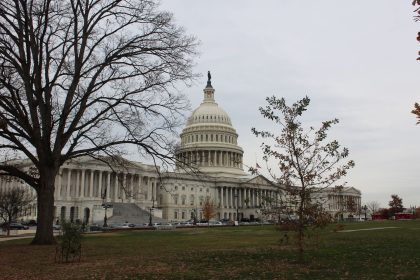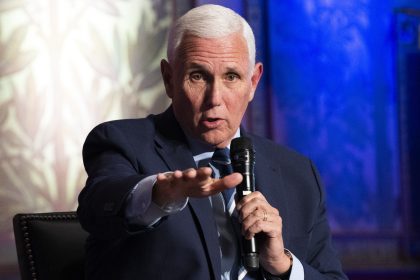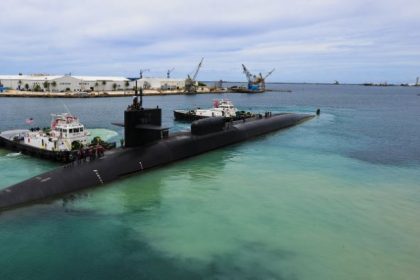US Officials Say Moscow Suspension of New START a Fixable ‘Mistake’

WASHINGTON — U.S. Arms Control officials are concerned about Russia’s recent announcement suspending the nation’s participation in New START, but they are willing to allow Moscow to fix its “mistake” and resume involvement in the treaty.
“Last week, we learned that President Putin had chosen to hold the one remaining bilateral nuclear arms control between the United States and Russia hostage to his expansionist goals,” Mallory Stewart, State Department assistant secretary in the Bureau of Arms Control, Verification and Compliance, told a gathering at Brookings, a D.C.-based think tank.
“Russia’s suspension of the treaty is not in anyone’s interest, but the good news is that these are readily fixable problems should Moscow choose to return to the benefits of transparency, stability, and nuclear risk reduction.”
Signed in 2010, New START was the last remaining nuclear arms agreement between Washington and Moscow. In June 2002, the United States withdrew from the Anti-Ballistic Missile Treaty citing risks of nuclear blackmail, and in 2019, the U.S. left the Intermediate-Range Nuclear Forces Treaty, stating that Russia failed to comply with treaty obligations.
Before the Russia-Ukraine conflict in 2021, the New START treaty was reconfirmed for its full five-year recommitment period. Stewart said Russian officials had confirmed support for New START many times; however, the treaty began seeing a deterioration due to noncompliance long before Putin announced his intention to suspend participation.
There was a mutually accepted pause to New START inspections during the pandemic, Stewart explained, but this understanding lapsed in June 2022 and Stewart insists both nations should now be able to fully exercise their inspection rights. As of August 2022, Russia has refused to comply with inspections.
“There is nothing preventing Russian inspectors from traveling to the United States and conducting inspections,” she said.
Furthermore, Russia hampered a New START treaty obligation to convene a session of the treaty implementation body which had been set for November 2022, but Moscow “pulled the plug at the last minute,” according to Stewart, and has not proposed another time.
“Russia has continued to assert that it is the United States that is not compliant with the treaty, and that is not true,” she said.
Concerned that Russian actions threaten the viability of New START as well as the future of U.S. and Russian arms control, Stewart said the United States would be watching carefully to see what Russia actually does in the wake of its recent announcement but would remain “postured to defend the U.S. and our allies” as well as committed in its efforts to safeguard the world from nuclear threat.
“The United States will not sit back and allow nuclear instability to metastasize,” Stewart said.
Despite Russia’s suspension of New START, what Stewart called an “irresponsible decision that defies logic and reason,” she said neither the United States, nor its allies and partners, would be deterred from supporting Ukraine. Rather, support for Ukraine was reinforced in the global community.
Still, should Moscow choose to reengage in New START, U.S. officials would welcome it.
“Putin was not forced to suspend participation. It was his choice and he can and should reverse it,” Stewart said.
“Neither country is better off in a world where the two largest nuclear powers no longer reengage in stabilizing forms of transparency,” she offered.
And while “it is hard to think about cooperation when we are in the middle of one of the most significant challenges to European security since World War II … arms control isn’t something that you can set aside when tensions are on the rise. On the contrary, the value of arms control is greatest when conditions are ripe for miscalculation, escalation and spiraling arms races.”
Kate can be reached at [email protected]

















